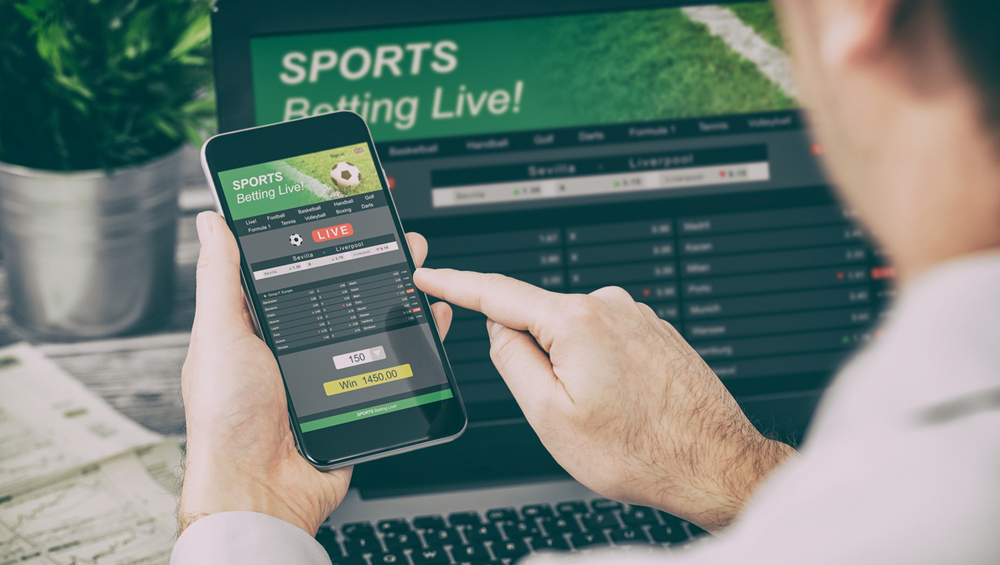
Media Waiting For Sports Betting Payoff

 NEW ORLEANS — Want to wager on how sports betting will change the media?
NEW ORLEANS — Want to wager on how sports betting will change the media?
A year ago, a landmark Supreme Court case opened the floodgates for sports betting in U.S. markets. That teed up a potential $200 billion annual infusion into the economy and myriad repercussions for media poised to pounce on its opportunities.
Pete Giorgio, principal and sports expert with Deloitte, told attendees of the Media Financial Management annual conference here on Tuesday those opportunities are already starting to take shape, but sports betting’s ultimate impact is a ways off from coming into focus.
For instance, that $200 billion figure comes from an estimate that the U.S. gets 40% of an annual global $500 billion a year in sports betting, both legal and illegal.
“Numbers in this space are super hard,” he said, given black market and gray market variables in sports wagering. “But these numbers are directionally correct.”
Giorgio estimates the actual revenue from betting is likelier to be $6 billion in the short term, and conceded that a number of the states that have enacted laws since the Supreme Court decision on Murphy v. NCAA did so with lofty expectations they aren’t yet seeing met.
But that doesn’t mean a windfall isn’t coming, and a large part of that bounty is likely destined for leagues and teams themselves. The NFL, for example, projects $573 million of increased revenue directly from sports betting with an even more impactful $1.75 billion from related fan engagement.
And that newly deepened engagement is projected to set off a chain reaction with wide reverberations for media.
“It’s going to cause people to watch the end of games that are booked,” Giorgio says, noting that 47% of a game’s total minutes are viewed by sports bettors.
One of betting’s most profound impacts is likely to be on upcoming rights deals. “Sports betting is going to increase that value,” he says, though quantifying how much remains elusive.
On the content side, Giorgio foresees an increase in content specific to bettors, including broadcasts dedicated specifically to them. He notes the NBA’s Washington Wizards are among the teams that have already put a toe in that water.
Partnerships between media and sports books are also likely to proliferate, such as Bleacher Report has already launched with Caesars Entertainment. And media companies have already begin grappling with whether they may directly integrate betting into their programming itself. Fox Sports recently announced a deal with the Stars Group in Canada, for instance, to explore the prospect of such integrations.
But lest anyone with a vested interest in sports betting get too far ahead of themselves, Lawyer David Oxenford, a partner with Wilkinson, Barker, Knauer in Washington, threw some cold water over the reality of its current prospects.
For one thing, the Supreme Court didn’t exactly legalize sports betting in its ruling. Rather than being a First Amendment argument, the case was more an issue of states’ rights, he says.
“Basically, we’re in a situation where right now it’s up to the states unless Congress decides to step in,” Oxenford says. Nevada, New Jersey, Delaware, Pennsylvania and West Virginia were among the initial rush of states to pass legislation legalizing it, while states including New York, Oregon, Arkansas and Indiana are among those with laws pending to allow it.
But even where the gates to legality have been opened, Oxenford cautions media companies to tread carefully. “Look in your states where you’re operating to see if there are limitations on the advertising you can run,” he says. Such limitations typically involve not marketing to children and promoting responsible gaming, for example.
Oxenford also warns media to watch out for collateral issues that come up in sports betting, such as team trademarks, the likenesses of individual players or even using team logos without permission.
“Watch the developments as they come along” from Congress, state legislatures, agencies taking enforcement actions and significant court cases, Oxenford advises.
But those many variables notwithstanding, Giorgio is sure sports betting will fundamentally change the state of play for media. “It’s a lot of money, and it has a huge set of implications.”


































Comments (0)